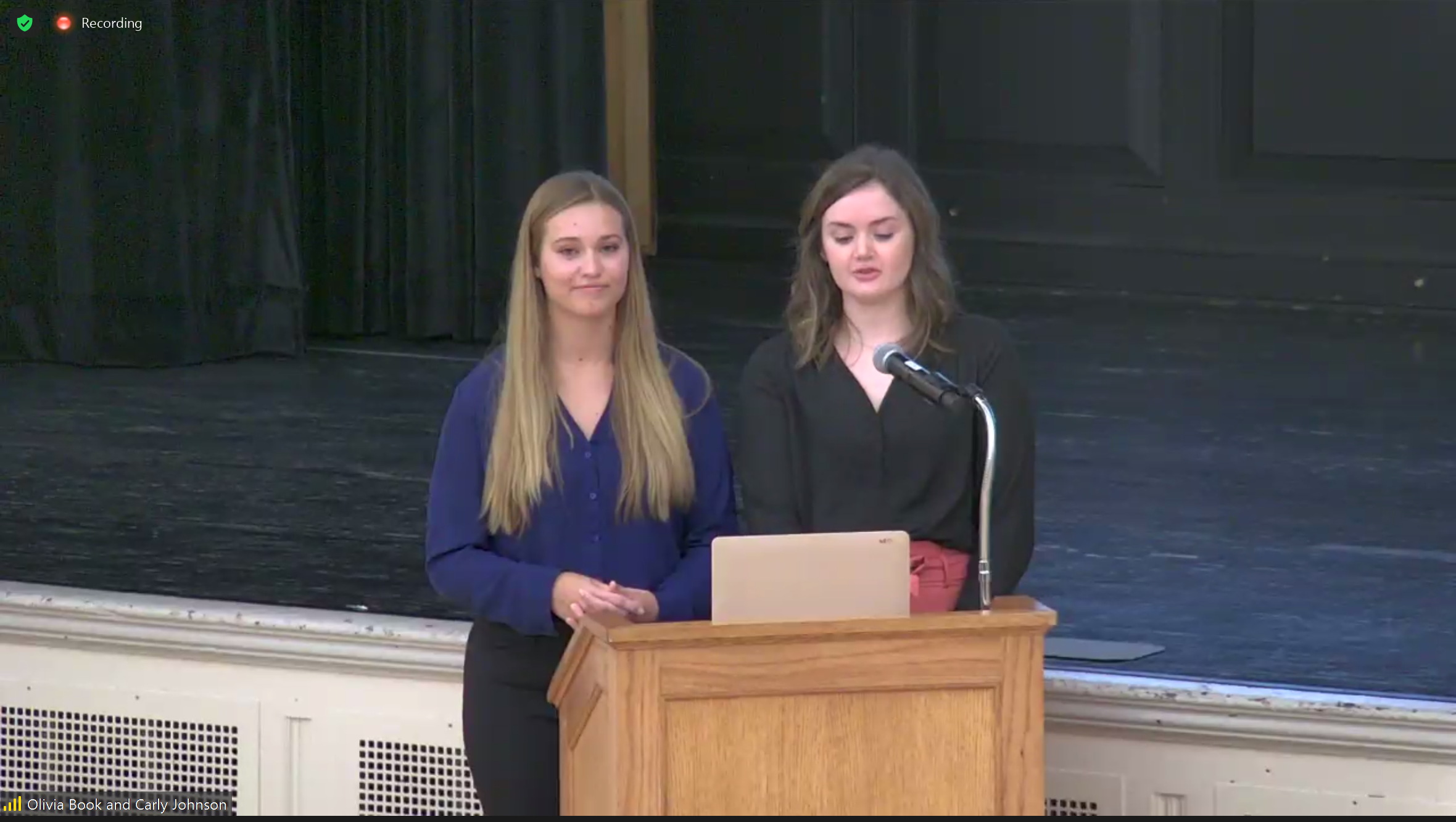
It’s not every day that faculty get to watch as their students present to an international audience, but that chance came a few weeks ago as 28 undergraduate Huskers participated in the International Conference on Undergraduate Research.
“It was exciting,” Amy Hruby, a UNL junior who presented on cortisol levels as a stress indicator, said. “Any opportunity I can get to talk about my lab’s research is an opportunity I will take! I am passionate about the work I do, and it was humbling to have it so well received, and to get so many good follow-up questions afterwards.”
The conference, as also known as ICUR, is conducted for 48 hours, across five continents with fourteen participating institutions. The University of Nebraska-Lincoln was in the first round of presentations to kick off the conference on Sept. 27 and ended around noon on Sept. 29.
The student presenters spent anywhere from several months to years researching topics with UNL faculty and mentors.
“Dr. Patrick Habecker, my UNL faculty mentor, guided me throughout the entire research project,” Clarice Ann Santos, a UNL senior who presented on the effects of drug use in Puerto Rico, said.
Last year was the first time that UNL participated in ICUR, making it the first institution in the United States to do so. The program made its way to Nebraska after Nick Monk, director of the Center for Transformative Teaching, championed for its inauguration.
“ICUR allows our students to have an international experience without travel,” Monk said. "This is a tremendous benefit at a time when opportunities for long-distance travel are severely limited. Students can use ICUR to practice their presentation and research skills, at an event managed by other undergraduates, where they have the freedom to hone their skills in a supportive environment.”
Student’s research topics are broken into one of about a dozen groups such as health and well-being, environment, or social systems that typically relate to their field of study and came about after class projects or conversations.
“While taking a meteorology course, I found myself frequently discussing the application of climate change on policies and communities with my professor, Ross Dixon,” Ally Barry, a UNL sophomore who presented on precipitation changes in the Plains, said. “Towards the end of the semester, he had extended an opportunity to me to gain experience in climate modelling.”
Other students had simply been waiting for a chance to put their theory to the test.
“I grew up hunting and had always heard hunters say, ‘deer can tell when it's the hunting season,” Kaitlyn Dozler, a UNL senior who presented on spatial ecology of white-tailed deer, said. “When I was given the opportunity to study deer movements in Dr. [Andrew] Little's lab I knew exactly what to research. I wanted to know if what I had been hearing growing up could be backed by real scientific evidence.”
While the undergraduates did the bulk of the research that was presented on, they were also quick to acknowledge the dedicated efforts from their faculty and university mentors.
“I would like to give a special thanks to Dr. [Kristi] Montooth and Dr. [Megan] Kobiela for not only making this opportunity happen, but also for supporting me through my research every step of the way,” Alexus Hansen, a UNL senior who presented on the effects of high salt on milkweed, said. “I couldn’t have done it without their amazing guidance and their belief in me."
“I would like to thank Dr. [Naomi] Rodgers for giving us the opportunity to assist her with her meta-analysis,” Olivia Book, a UNL senior who presented with Carly Johnson on stuttering and mental health, said. “She very quickly became a mentor to us, and I look up to her in so many ways.”
“I would like to thank Dr. Amanda Ramer-Tait for giving me the opportunity to conduct this research, the entire lab team, for supporting me from the very beginning, and my graduate student mentor, Tony Juritsch, for teaching me everything I know about lab work,” Sukaina Al-Hamedi, a UNL sophomore who presented on gut bacteria, said.
“I would like to thank Dr. Paul Read, Stacy Adams, and Dr. Sam Wartman at the University of Nebraska-Lincoln, and Marc van lersel at the University of Georgia for their help in designing, monitoring the research, reviewing the paper, and the presentation,” Mark Iradukunda, a UNL senior who presented on fertilizer and vitamin C content for kohlrabi, said.
For those students who are not sure about submitting research for future conferences, the presenters overwhelmingly echoed the same advice – go for it.
“Never be afraid to try something out of your comfort zone,” Dozler said. “I never imagined myself doing research when I came to college and it has turned into a vital aspect of my college experience that is going to help shape my future.”
Faculty are encouraged to have students apply for ICUR 2022 when the submission process opens sometime in March of next year. Those interested in learning more about this year's presentations and ICUR can visit teaching.unl.edu/icur.
More details at: https://teaching.unl.edu/icur/